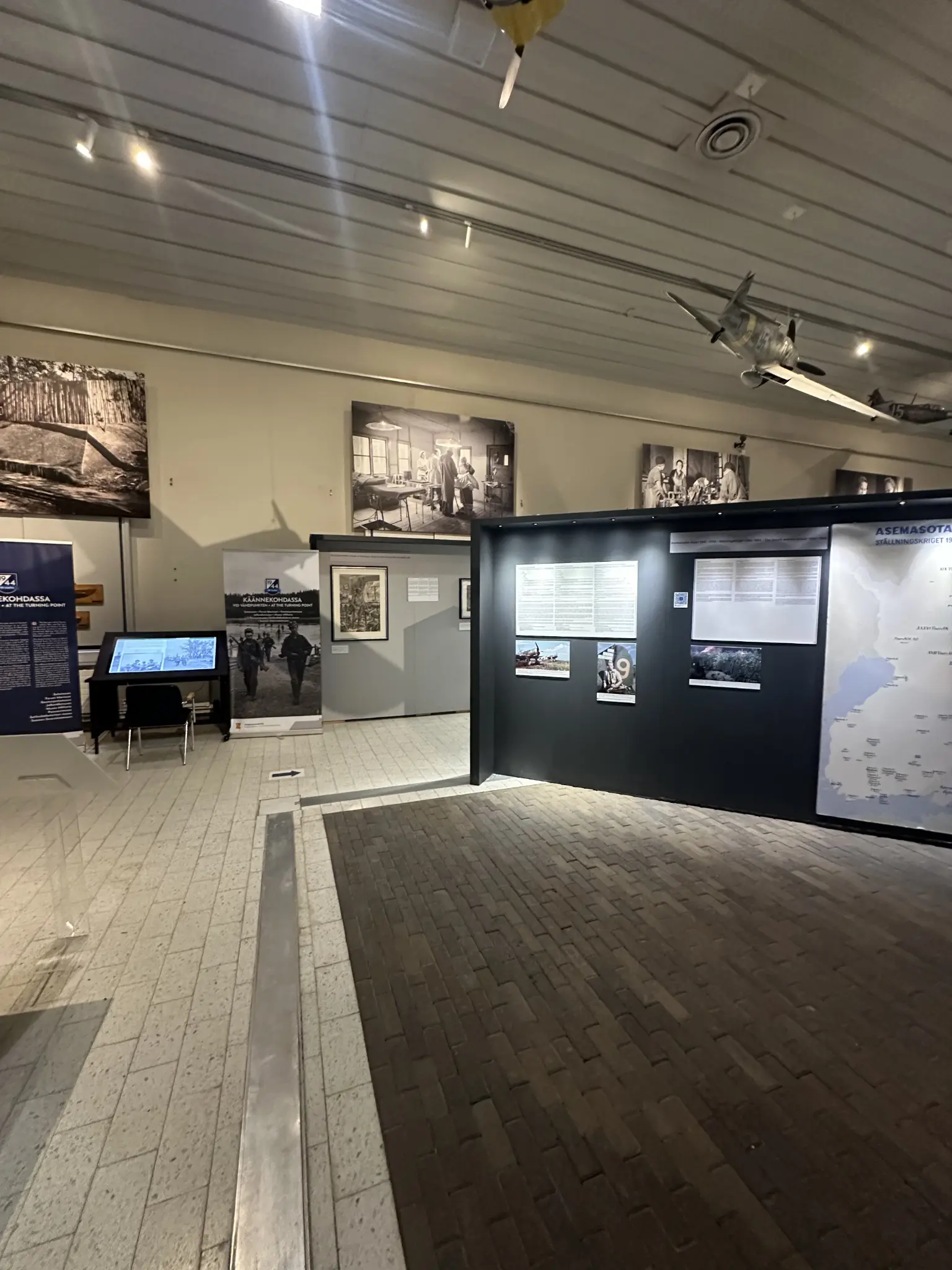
Continuation War 1941–1944

Continuation War 1941–1944
The attack phase during the Continuation War, 1941
For Finns, the Continuation War's attack phase began on 25 June 1941 and continued until December. This is when Finland conquered back the territory it had lost during the Winter War and more. Those sent out to war had fought in the Winter War. They were better equipped this time, and constituted a 400,000-strong army. The north of Finland was entrusted to German troops made up of some 200,000 men.
Trench warfare 1942–1944
Finnish troops managed to make progress until autumn 1941, after which they stayed at their stations for more than two years. The Soviet troops were occupied with repelling the German Army in Moscow, Leningrad and Stalingrad.
Soldiers spent their days doing fortification and road work, and during their free time they did handiwork, studied, wrote home and did sports. Popular movie stars and musical performers would go on tours to entertain the soldiers stationed at the front. Occasionally soldiers got home leave.
Summer 1944: fighting back
There were attempts at settling a peace treaty earlier on in the winter of 1944 – while the Soviets bombed Finnish cities – but these attempts failed. In the spring of 1944, the Soviet Union began preparations for forcing Finland into peace.
The Red Army launched offences on the Karelian Isthmus on 10 June. These continued on the Maaselkä and Aunus Isthmuses. One of the fiercest battles and one that is often referred to as the biggest battle in the history of the Nordic countries was the battle of Tali-Ihantala which took place from 25 June to 10 July. In the summer of 1944, 20,000 Finnish soldiers were either killed or declared missing in action during the battles to push back the Soviets. The Soviet advance was put to a stop in the battles that took place in July–August. Finns then had the support of German troops and weapons. The Germans' defeat in the Second World War was, however, already a fact. This made Finns want peace all the more urgently.
The Continuation War against the Soviet Union ended in a truce 4–5 September 1944. Among the peace terms were the restitution of borders dictated in Moscow Peace Treaty of 1940 the cessation of Petsamo and the leasing of the Porkkala area to the Soviet Union. Germans were to be expelled from the country. The interim peace treaty was signed on 19 September 1944.

